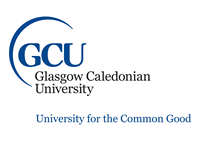Reference: SHLS20069
Background
Recently the composition of the bacterial species that reside in specific areas – the microbiome has been implicated in many long term health conditions. Alteration or dysbiosis of the gut microbiome has been reported in diabetic patients and has been linked to the maintenance of obesity and irritable bowel syndrome. The microbiome of the skin is important, not only in the protection against potential pathogens but may play a pivotal role in the ability of the skin to heal. Diabetic patients often suffer from poorly healing ulcerations and the understanding of the skin microbiome and its role in the prolonged healing process in these areas could provide possible therapeutic options by identifying protective bacterial species.
Aims
This project will compare the changes in the microbiome in diabetic patients after treatment with metformin and other drugs using Next Generation Sequencing Technology and bioinformatics to identify species of bacteria and thus characterise the composition of the skin microbiota at various time points. Conventional microbiology will be used to isolate possible protective or pathogenic species and examine their tolerance to anti-diabetic drugs or antimicrobials. The host response using skin cells will also be investigated using these isolates On comparison with non-diabetic controls identification of the differences in the complex microbiomes could provide a potential therapeutic with major human health implications.
Specifications
Applicants will normally hold a UK honours degree 2:1 (or equivalent); or a Masters degree in microbiology or related discipline. Experience with bioinformatics is desirable. Equivalent professional qualifications and any appropriate research experience may be considered. A minimum English language level of IELTS score of 6.5 (or equivalent) with no element below 6.0 is required.
Research Strategy and Research Profile
Glasgow Caledonian University’s research is framed around the United Nations Sustainable Development Goals, We address the Goals via three societal challenge areas of Inclusive Societies, Healthy Lives and Sustainable Environments. This project is part of the research activity of the Research Group – Molecular Mechanisms of Long Term Conditions
Candidates are encouraged to contact the research supervisors for the project before applying. Applicants should apply for their preferred intake date using the Biological Sciences links via the Application Process page stating the Project Title and Reference Number

 Continue with Facebook
Continue with Facebook



